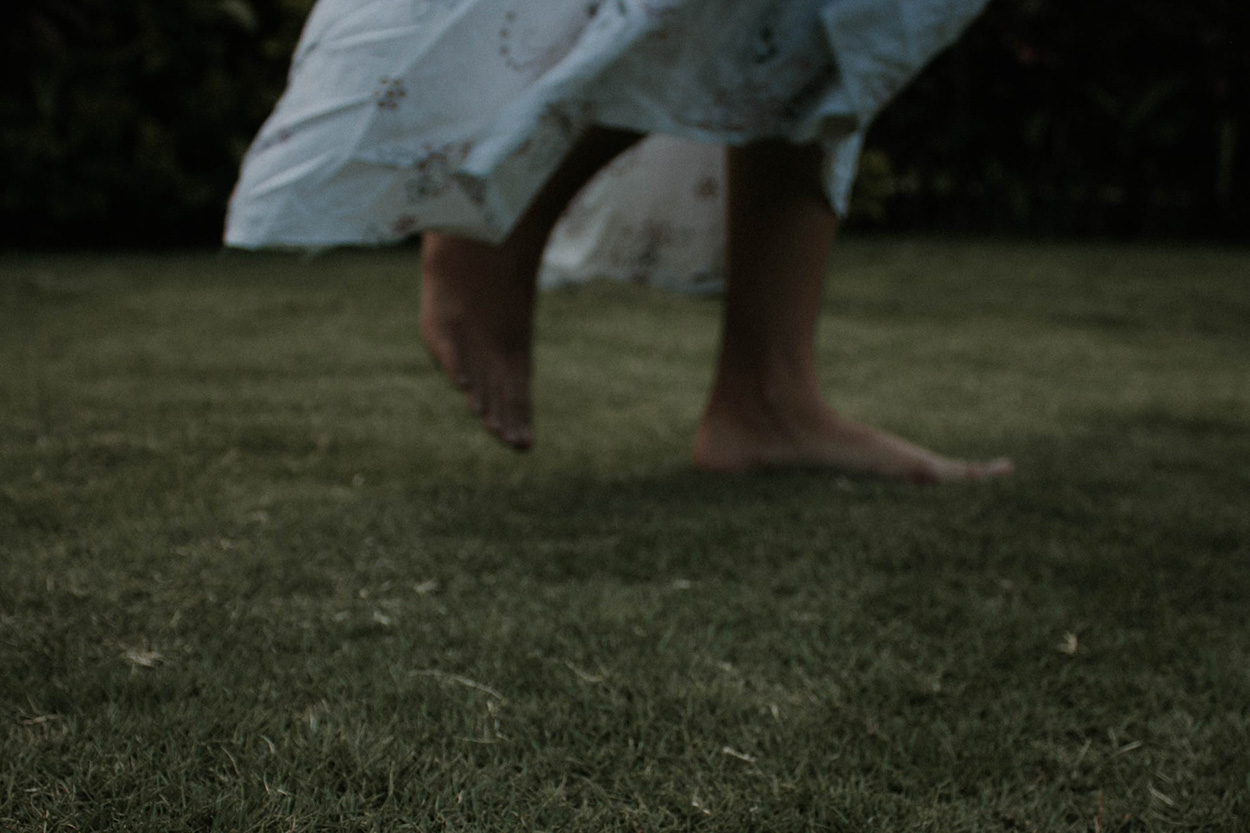God sent two angels to Sodom, to warn Lot of the city’s impending destruction. They told him to take his family and to get out while they could. As Lot and his family fled, Lot’s Wife looked back at the sulfur and fire consuming her home. Because she looked back, God turned her to a pillar of salt. (Genesis 19)
Sometimes I have to wonder, where did they want me to look, anyway? My eyes were always in the way. Liquid brown, melting over everything, mud that dirtied men, earth from which crops arose. Lot, looking into them, always told me that light in my eyes would be the death of us. Smirking, pushing at his shoulder, I told him no, it was his waywardness, his inclination towards what was wild and unwieldy. When angry, I’d say our downfall was that he couldn’t be more like Abraham. That shut him right up. We were both wrong.
I know I am not like Sarah. I am not holy nor pure nor righteous. My womb does not offer up miracles. Serpents whisper in my ear that I am the image of Eve, paving the divine route of insurgent women, women thirsty to know. Dusty-bearded men write me as a materialist, as if copper jars and woven rugs were the deposits of my longing, as if my yearning could be sated within the trappings of a house. They talk of stinginess with salt as a precursor to my sin, which is hilarious, because oh my God, there was salt in every crevice of that kitchen of ours; Lot was terribly messy and couldn’t get enough of the stuff. I’d fall asleep beside him with his salt and pepper beard and dream of grains of salt stuffed down my throat until I couldn’t even cry. Some laud me, because I was a mother and a wife and a daughter – as if I had a choice. Still, I detest how they write me into a victim.
The day I met Lot, I had gone out of my mother’s house to run. It was a fresh day, pouring rain. My bare feet pounded on the mud making squelching sounds, hair loose and drenched behind me. The air tasted like everything my grandmother liked to say I couldn’t have. I ran and I ran until I ran right into a strange man. I knew every young man in that town but I didn’t know him. His eyes were brown but not like mine, they were fiery, a tree trunk about to set ablaze, something incendiary just beyond sight. I looked him up and down. His body was muscled, but he didn’t wear it with bravado. He was clothed in earth tones, which I preferred to the flashy colors most men wore around here.
“Who are you?” I asked, panting, wrangling in my breath.
“I am Lot. Lot of Ur. And you, young lady, with whom do I have the pleasure of meeting?” At that I laughed, pierced his gaze with mine.
“I do not tell strangers my name.” His brow knit. I stared at his unruly eyebrows.
“Excuse me?”
“My name. It’s a secret. My grandmother says I’m insolent. My mother says I am how women should be.” I threw my shoulders back. Rain caught in his chin’s stubble. I had the urge to press my fingertips to the droplets, squeezed my hands together instead.
A smile played at his lips. He cocked his head to the side.
“And how is it then, that women are supposed to be?” We were in a forest clearing. All around were these tiny bright green leaves, thrusting out their vibrancy, their life. Nothing was dark green but the pines. The sky was silver, my skin glowing with rivulets of water that seemed to wash away all of my scoldings and reprimands, or better yet, it was as if that which I was chided for was the very thing setting me alight.
“You ask that, Lot of Ur, as if I care how women are supposed to be.” I stepped closer to him. I could hear his heartbeat, feel the mud between my toes. Wind blew dark curls in his face and he threw them back.
“I’d like to know your name.”
“I guess you better get to know me then, huh?” The torrent of rain soaked my dress, making it cling to my hips. I pulled it away.
“And how, may I ask, can I do that?”
I pressed my hand to my hip, rubbed my chin with my fingers. He was wearing these ridiculous sandals, soggy and strapped around his ankles.
“Well, Lot of Ur, you’ll have to catch me if you’d like to know.” And with that I was off, pine needles sticking to my feet as I sprinted deep into the woods, slapping my palms against tree trunks to feel their power. All it took was a glance back to see Lot throw his sandals over his shoulders and take off in my wake for me to know that I would let him catch me.
Some say I looked back for my daughters. I can’t say that’s true. I loved them dearly, yes, but they were no longer mine to make decisions for. Some debate my status as a miracle, discuss if I am renewed upon sunrise. I’ve even heard word that I, the pillar of salt, menstruate. They paint me as an adorned seductress, loose as my garments were tight, waving timbrels amidst spring nights. God, how they demonize the nostalgia they write me into having, as if longing isn’t buried in human bones, aching to be reaped, as if to want is an abomination. They say my sin is that I enjoyed myself too much at Sodom’s orgies, eyes flecked with timber as I gazed at every stranger. On that, I have no comment. Besides to say that, wouldn’t the real sin be to not revel in wine that sings its way down your parched throat, fiery hands on cold skin? They call me “Mrs. Lot”. I hate that. They say I was grieving my loss as the only righteous woman; that sizzles my bones, as if I bought into that scathing myth we force feed our girls, that womanhood is scarce and to be monopolized.
My grandmother loved Lot, but I didn’t care. I was honey seeping off the old wood kitchen table around that man, puddling in its grooves, languid and liquid. His stories melted and roiled my wanderlust: tales of shepherds under sizzling skies, whole days on the road in those same worn sandals without sitting once, the way every time he closes his eyes he feels the callused squeeze of Haran’s hand on his, before his father closed his eyes for good. Withheld truths he let gnaw at his stomach in order to protect his uncle’s lies and pride, even if it meant letting Sarah be ravished by that Pharoah with frigid eyes. We were children together, scampering up trees too hefty for me to wrap my arms around, diving naked in the water during downpours, extracting grapes from their vines in hazy summer heat and throwing them at each other’s faces, that season when everything is almost too green to believe in.
That autumn, I thought I’d harvested a hope too blustery to contain. I thought, my feet can be mud-caked, hair tangled and untrimmed, I can belt crude songs with the boys and sprint through the forest, brambles snagging my best dress, and have a man who loves me for just that. Oh, and what I yearn for now is both the love and the yearning for the love, when the ache in me was as palpable as blue dusk, as red light drenching the horizon, as a cardinal pausing on a post on a gray and sleep-deprived day.
And oh God, you’ve really punished me in the worst way. You know how I hate to be still, all I want is to run and to run and to run and be always on the precipice right before becoming. You took that from me. You took all the human souls I loved and you took the wind that ignited my soul too and I don’t know if I can forgive you for that. I’ve never had the piousness of a man. I’ve never been like my husband, and I think, because that’s all I can do nowadays, you’ve condemned me to my mind, no worse punishment than that, God. I think you made me salt not because I looked back but because I couldn’t look at you the way Lot did, I couldn’t look at you the way I looked at Lot. I found the divine in the blazing touch of strangers and the harsh twinkling of the timbrels and in my own damn heart, that was my real crime, wasn’t it, wasn’t it, the love that swelled and broke and awashed everything my hands could clench was my God, my own damn love was my God, and you couldn’t take it, you said, this woman, this secondary divine image, she is not a companion only to Adam but also to herself and that will not do, she feels too tremendously, it is an earthquaking thing, this Lot’s wife, and so she will be condemned to the meekest and most feminine of feelings. She will become tears and grief and undulating sadness, see how she likes that, she who purports to feel everything, she who thinks she sees me in the sun a wink before its set.
And oh God. See what you’ve done? On behalf of all the sad women? On behalf of every girl who ever cried? Oh God. You thought it was a timid thing, these female tears, these wracking sobs. But where do you think the ocean comes from? Who is it, to whom the tides swear their allegiance? Oh God, I pray for you, you who equates crying with cowering, you who will never ever know my name.

